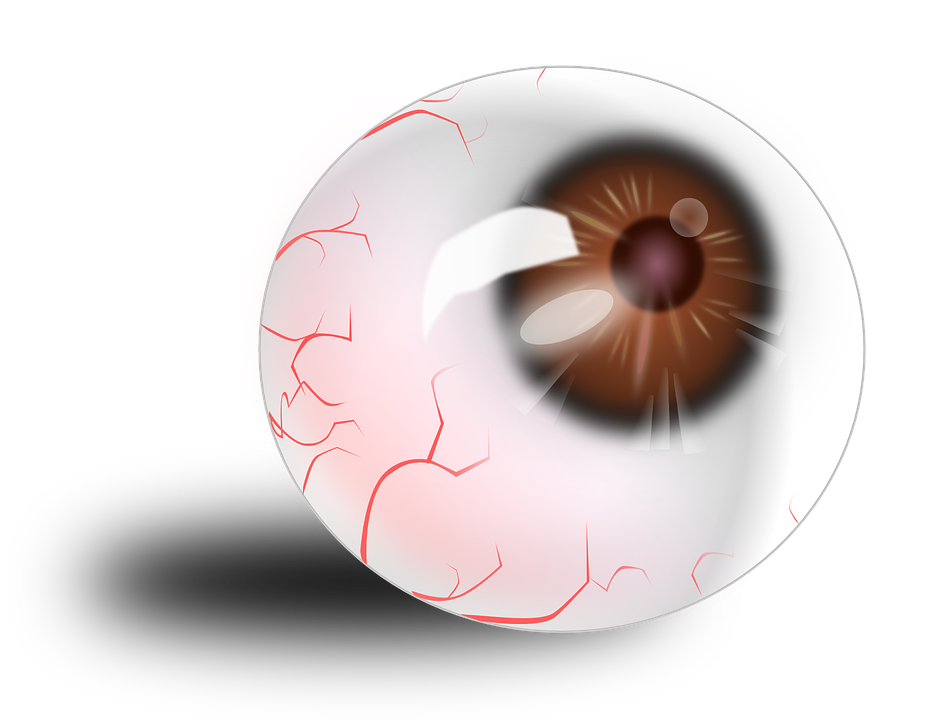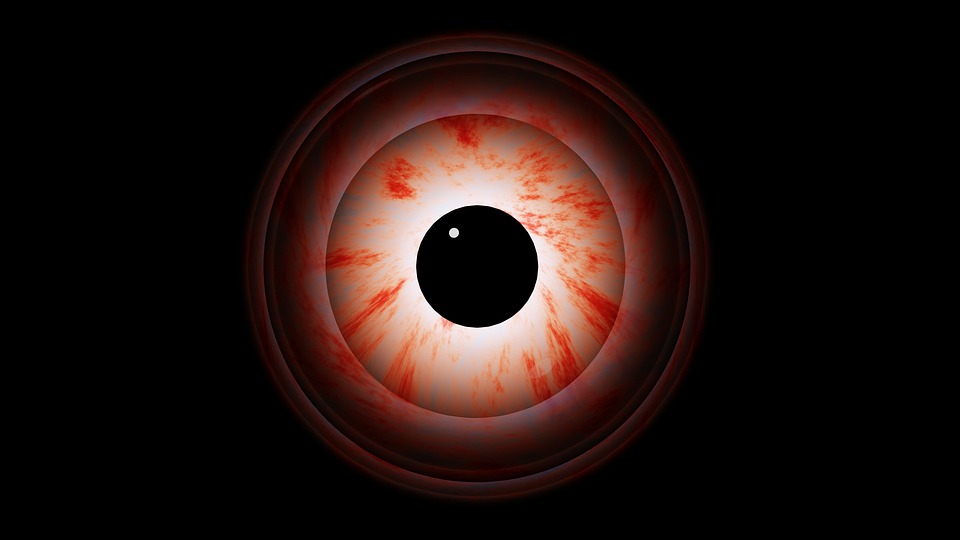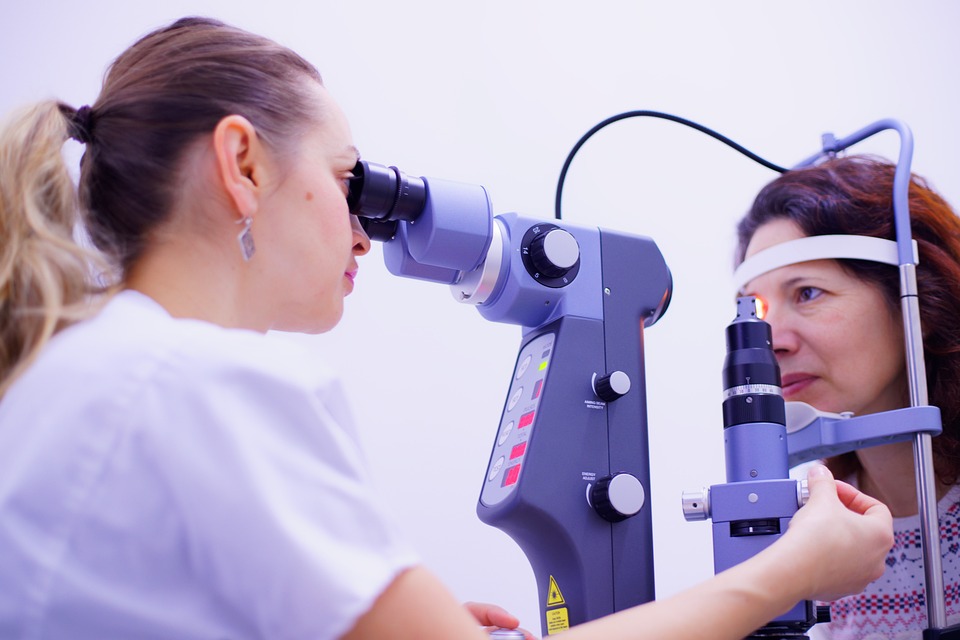A Case of Globe Rupture? What you need to know and what not to do.
Greetings to all and sundry,
It is the first day of the week, how was your day? How has the week begun for you? For me, it was quite stressful, I didn't have a heavy enough breakfast and I had quite a substantial number of patients coming in today which meant more work, no sitting, and hunger, some of the cases that came were an eyesore but all I must say it was ok and we continue to do out best every day.

Today, we would be continuing our discussions as we have been doing, and as usual, we would be focusing on the eye and its health and its related pathologies as well. Today we going to go a little bit more personality into a case I had to manage recently and so whiles I will be telling it like a story I do hope you get to learn a thing or two from it and that it guides your actions and inactions when it comes to your ocular health.
Introduction
So on Saturday midnight, I received a call whiles I was out and away from the town where I reside about a patient who has been brought in because they are crying blood, literally. Hearing I already had a few differentials in mind as to what could possibly be going on because I had met a situation like this before where a patient had a stye on the lid rupture.
The content of the style included some blood mixed with the tear and because it couldn't drain through the punctum or the area where tears drain into our nose, it came out as crying blood, the only thing I was worried about however was the fact that the patient was in pain and so I had to direct the nurse available to give first aid whiles I did well to return as soon as I was done with business in town.

Getting back to the hospital later that night around 1am I went in to see the patient the true blood was coming out of the eye as described however the pain had subsided after the first aid. The area between the cornea and the sclera at the inferior part seems to have ruptured due to some pressure or force from within the eye, meaning he needed surgery.
And so for my initial diagnosis, I considered a globe rupture which means that the eye ball in itself has ruptured like a balloon rupturing and so I needed to have a consult with the Ophthalmologist for a possible enucleation (complete removal of the eyeball) to be done and I needed a second opinion too because it was quite late when I came in exhausted and driving at that time, the eye look quite terrible so it could be worse than that but in all the prognosis was not good and the eye was definitely gonna be taken out.
Globe Rupture/ Ruptured Staphyloma
Fast forward to this morning when I got the Ophthalmologist in for a consult and we decided that it was a rupture staphyloma and so they would have to concur for enucleation to still be done to not only make things better for him but also prevent the possibility of metastasis through circulation. And so what happened was that he had cancer within the eye which bulged out until it busted out causing bleeding leakage of intraocular content etc.
And so that eye is definitely gone, artificial replacement would have to be given but then it drew my attention to the possibilities of globe rupture and how poor the prognosis is should it happen to anyone and why we ought to be safe and I felt like sharing that with my readers today. And so as I was saying, globe rupture is like a balloon (which is basically your eye) bursting. When this happens you are going to lose your eye completely, thankfully this is not a common occurrence but there are a few instances that I had encountered with my colleagues while working.

Let me say the most common phenomenon that normally results in this condition is trauma to the eye. It is seen in individuals who engage in brawls or fights, a strong enough blunt trauma or blow to the eye can literally blow out the eye and cause you to lose your eye permanently. It would be like poking a balloon with a needle. And the other instance was a case of extremely high IOP that came about such that the eye couldn't hold it in any longer, resulting in a globe rupture.
No matter how quick you may be to get yourself to the hospital in such a situation or occurrence, the prognosis for a globe rupture is always bad and vision loss is certain and so please be safe, take very good care of your eyes, and thus your sight. Avoid brawls and fights and if you find yourself in such a situation please put your eye's safety first. If you happen to have a condition that has to do with the elevation of pressure on the eye too, please ensure you control it well and follow treatment protocol lest things get out of hand and this happens.
Conclusion
The eye is indeed a fragile organ and we ought to be very particular about how we treat and care for it, we have to always protect it and think of it first in situations that posses a threat to it. Losing your eye or sight is almost always permanent and that is probably one of the worst and most unfortunate things that happen to you as an individual, it is something I would never wish on anyone.

And that is why I am always here educating, enlightening, and guiding so we may do right by our eyes and our health always. Let's develop a better and safer habit of not buying over-the-counter eye drugs without proper care and examinations, learn to have regular eye examinations, and learn to keep our ocular appointments and do well to have a good and healthy lifestyle always. I am glad I got to come your way today and I am grateful for your time and the read. Stay safe and have a fruitful week.
Further Reading
Cherry P. M. (1972). Rupture of the globe. Archives of ophthalmology (Chicago, Ill.: 1960), 88(5), 498–507. https://doi.org/10.1001/archopht.1972.01000030500006.
Chronopoulos, A., Ong, J. M., Thumann, G., & Schutz, J. S. (2018). Occult globe rupture: diagnostic and treatment challenge. Survey of ophthalmology, 63(5), 694–699. https://doi.org/10.1016/j.survophthal.2018.04.001.
Joussen, A. M., Müller, B., Kirchhof, B., Stappler, T., & Zeitz, O. (2020). Rupture of the Globe: What to Do, What not to Do. Bulbusberstung: Vorgehen und Ergebnisse. Klinische Monatsblatter fur Augenheilkunde, 237(9), 1070–1078. https://doi.org/10.1055/a-1233-8997.
Mahr, M. A., Garrity, J. A., Robertson, D. M., & Herman, D. C. (2003). Ocular hypotony secondary to spontaneously ruptured posterior staphyloma. Archives of ophthalmology (Chicago, Ill.: 1960), 121(1), 122–124. https://doi.org/10.1001/archopht.121.1.122
This is a first. Never heard of globe rupture.
Thanks for the insight.
You are welcome please
Thanks for your contribution to the STEMsocial community. Feel free to join us on discord to get to know the rest of us!
Please consider delegating to the @stemsocial account (85% of the curation rewards are returned).
Thanks for including @stemsocial as a beneficiary, which gives you stronger support.